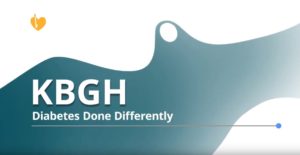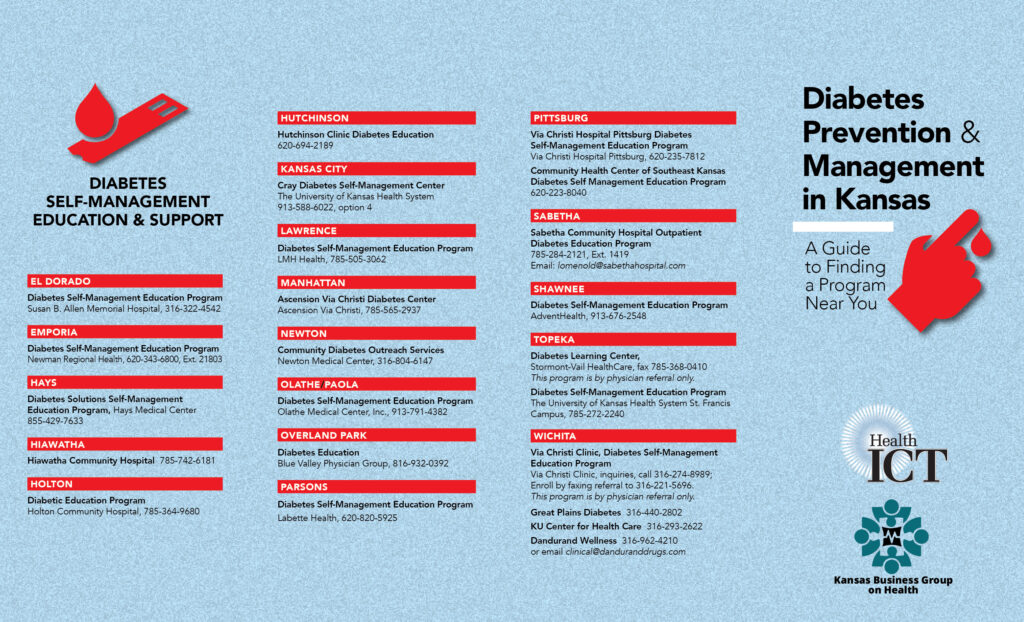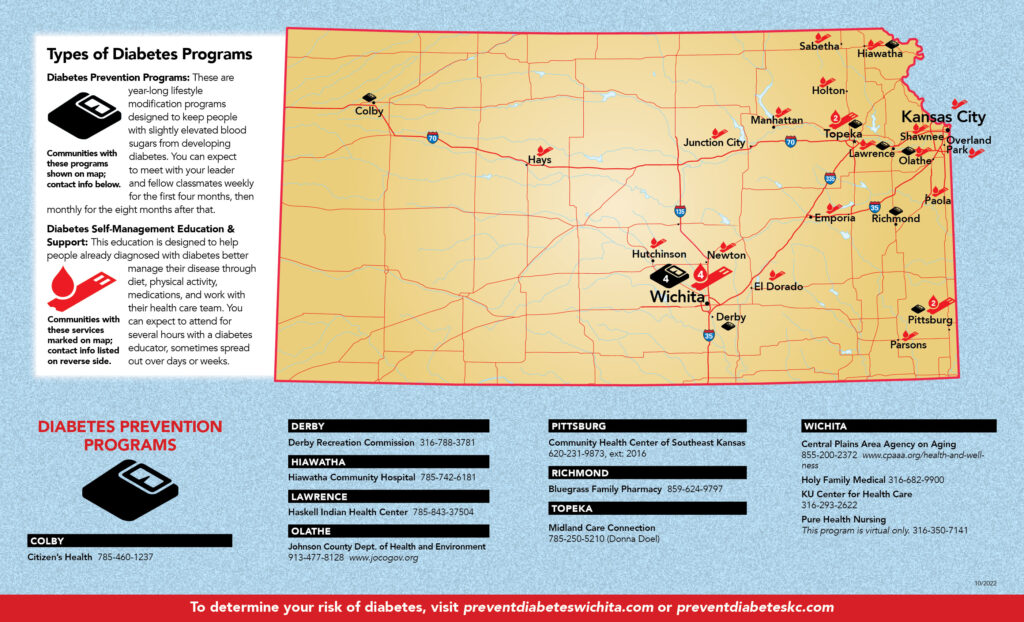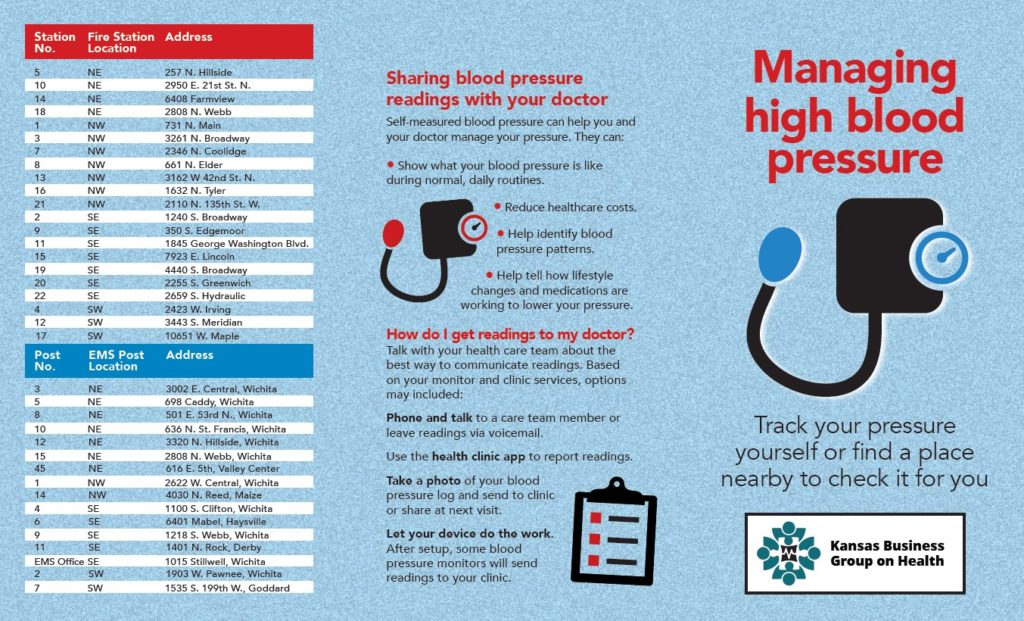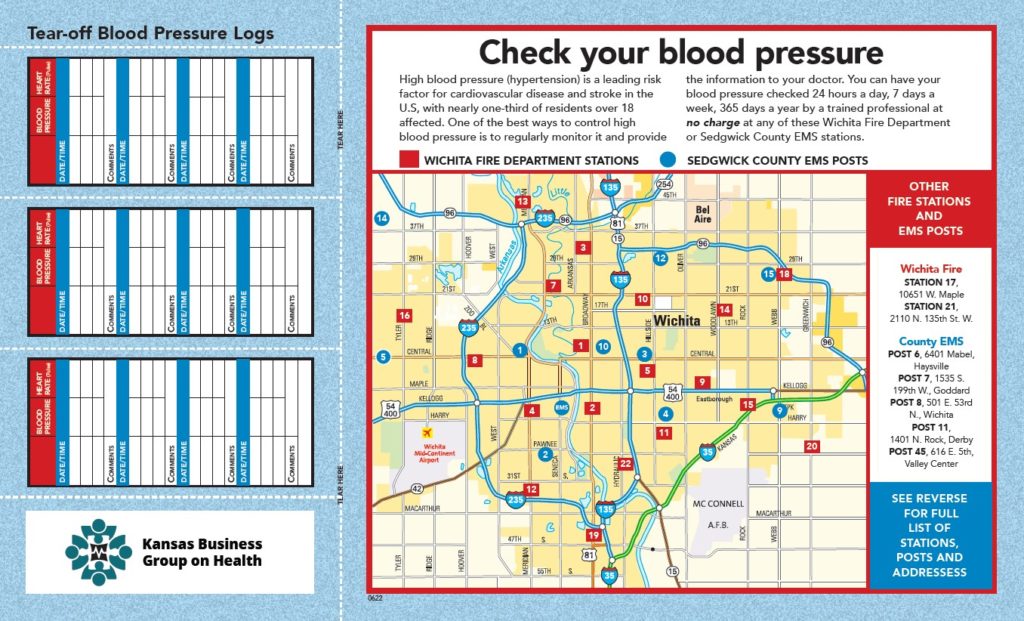
Health ICT
In 2021, Health ICT joined with the Kansas Business Group on Health. However, the work and the mission remain the same: helping providers improve the identification, prevention, and management of individuals with diabetes, hypertension, and high cholesterol.
With funding provided through the Centers for Disease Control (CDC), we collaborate with healthcare providers to develop team-based care approaches to care delivery in which non-physician team members are empowered to handle the more predictable, routine tasks in patient care to ensure consistency and to allow the physician to focus on the more severe patient issues.
Since 2016, we have been assisting providers in Wichita and across the state by providing funding and free technical assistance. See the graphics below to get a better understanding of our quality improvement process. Contact us to learn more!
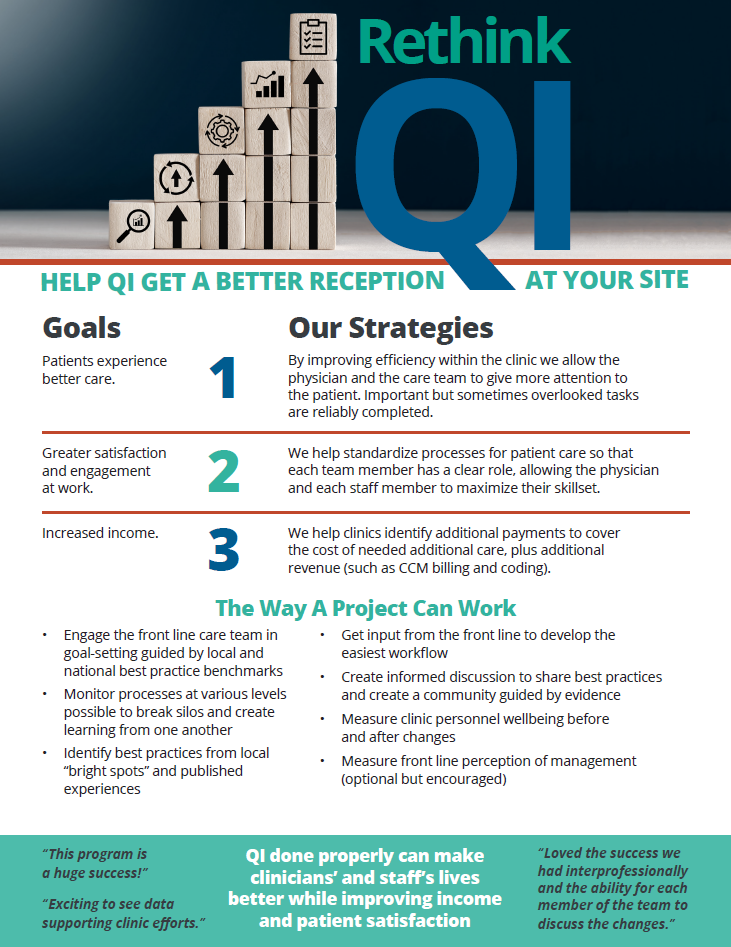
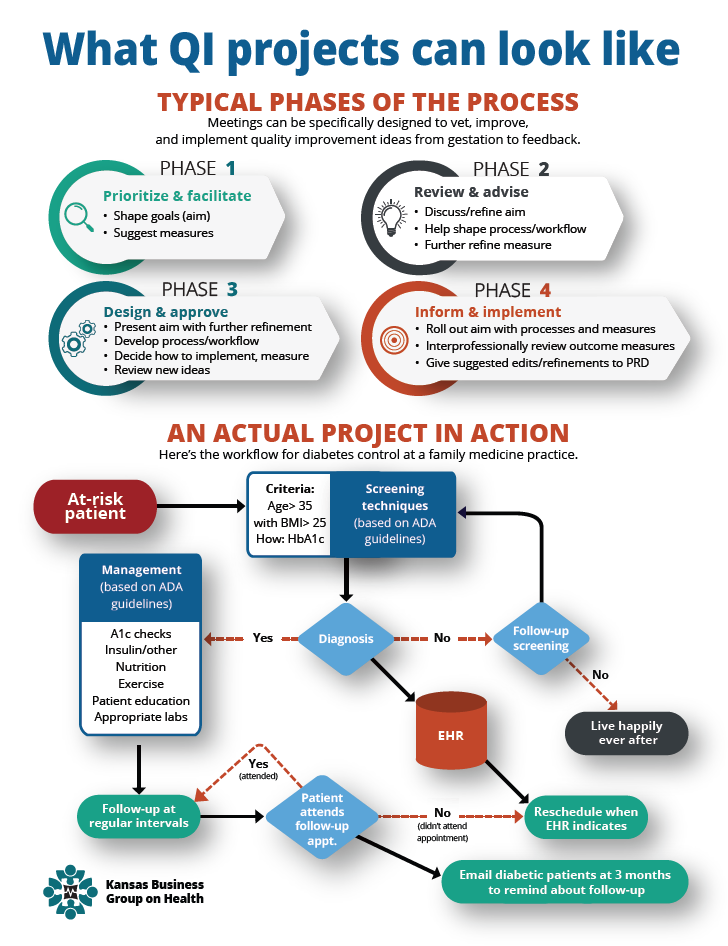
Clinical Quality Improvement Projects
In partnership with the KU School of Medicine-Wichita, we have completed several quality improvement projects within physician offices that address the identification, treatment, and (when necessary) referral of patients with pre-diabetes, diabetes, hypertension, or elevated blood cholesterol levels.
Some successful projects include:
Best Practice for Predicting Cardiac Disease
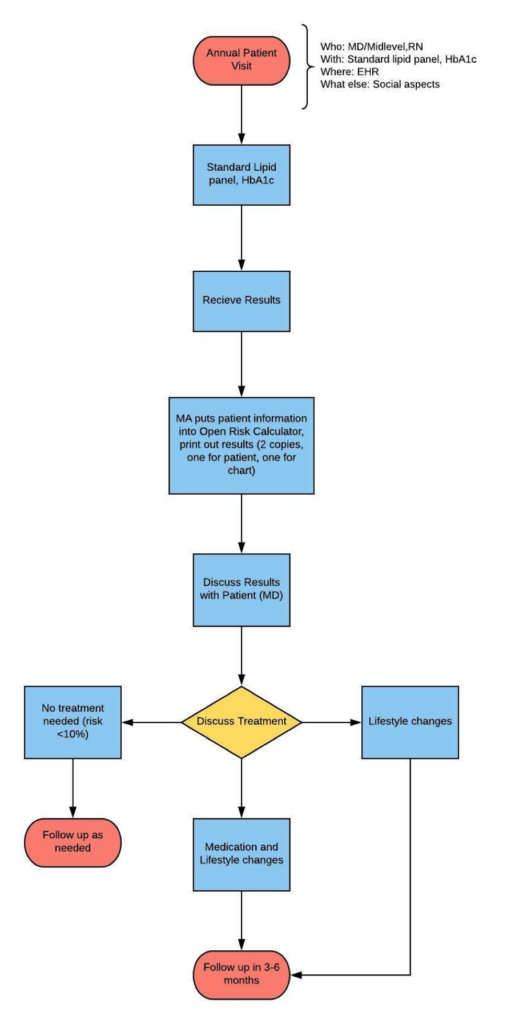
Hypertension Treatment Algorithm
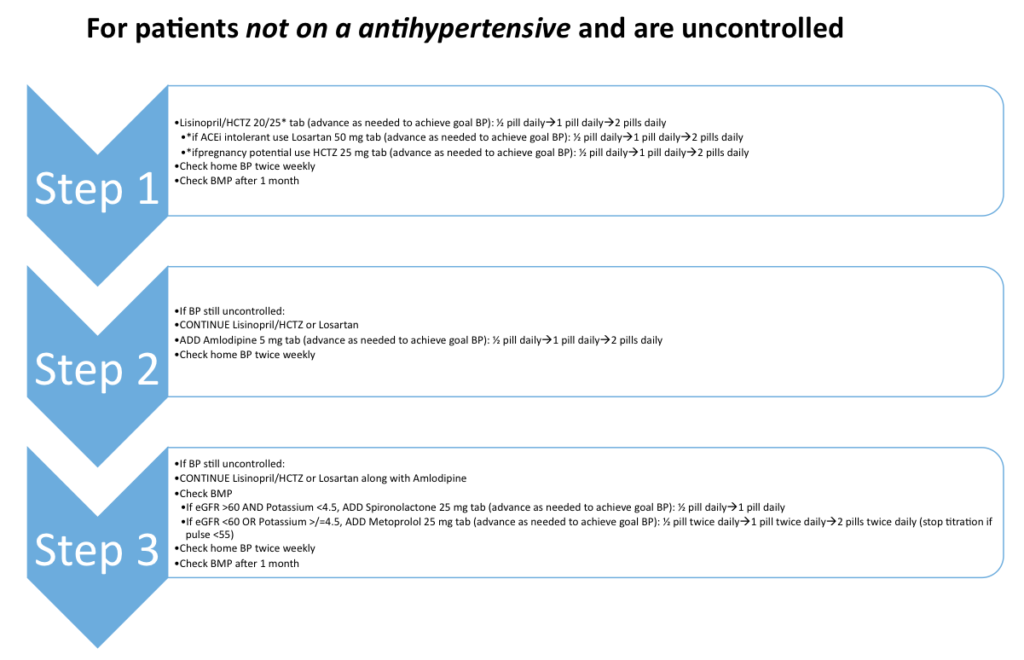
Assessing Cardiovascular Risk and Statin Use
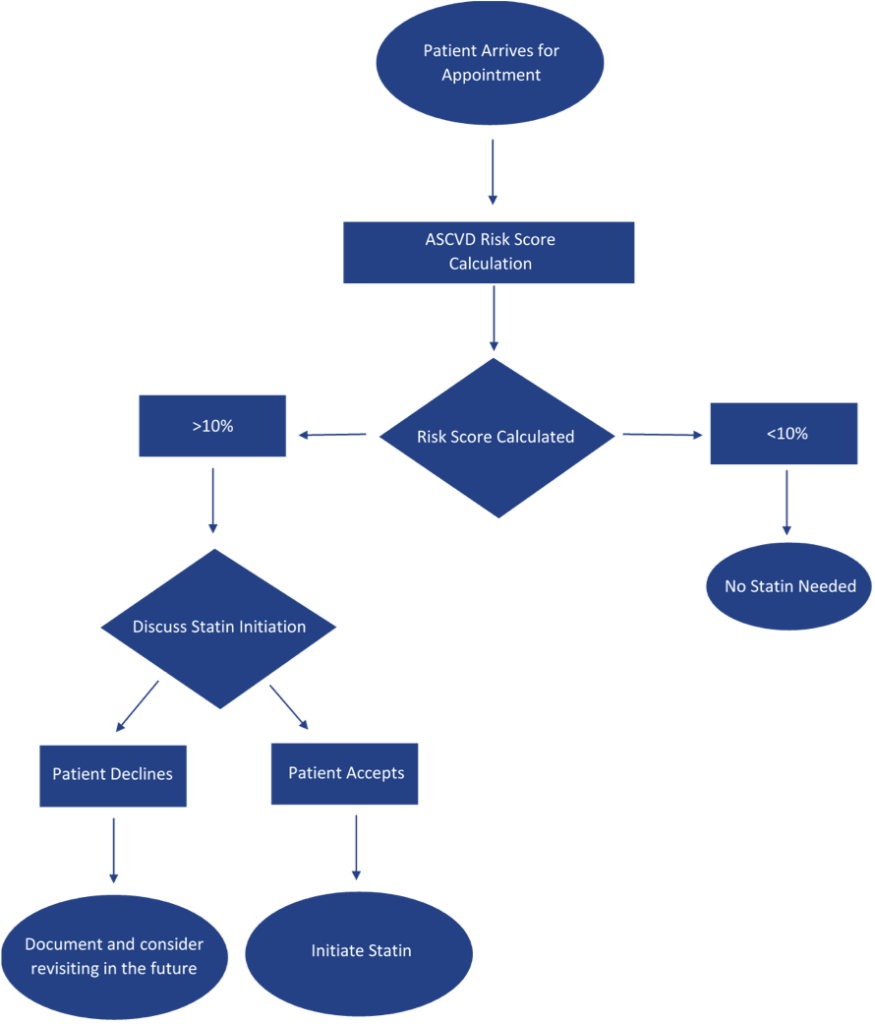
Tracking and Improving Diabetic Control
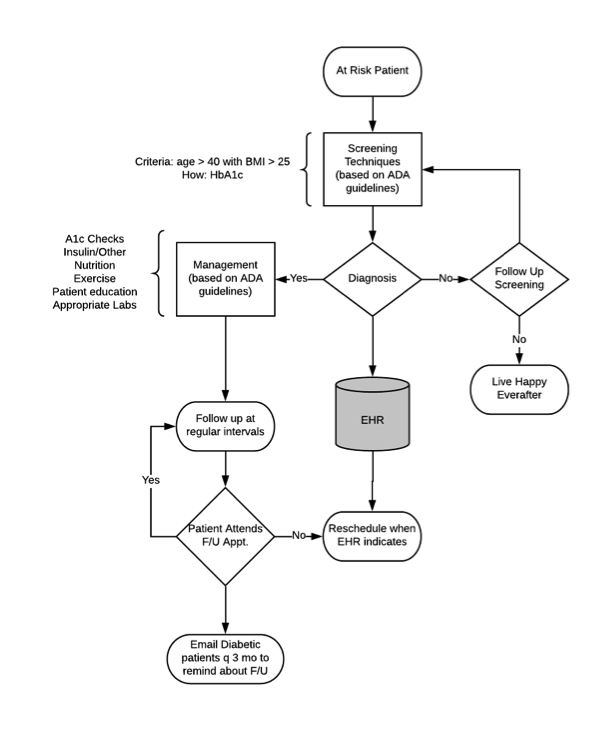
Improving Hypertension Management Through Positive Deviance
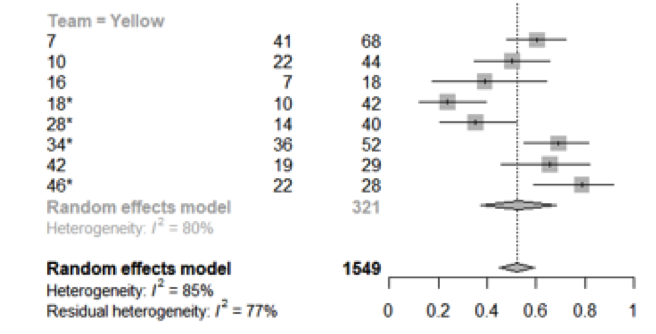
Implementing Twine
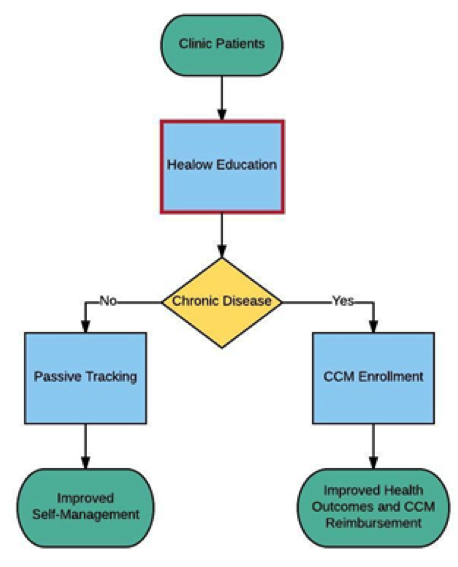
Resources for Team-Based Care
When looking to implement a quality improvement initiative within a healthcare practice, there’s no need to re-invent the wheel. Below is a list of of best practices.
- AMA Steps Forward Team-Based Care Module: This collection of AMA’s STEPS Forward® toolkits offer proven strategies on how to implement team-based care to save time, redistribute and share responsibilities with your team, and allow you to provide better and more timely care.
- The Weitzman Institute’s “Upskilling” Program: Recognizing the great value and importance of ancillary professionals, the Weitzman Institute provides various upskilling education efforts specifically geared towards MAs and CHWs. This is done to support this segment of the workforce in enhancing their performance and competencies, and also setting them up for professional advancement within the field.
- AHRQ’s White Paper Creating Patient-Centered Team-Based Primary Care: This paper proposes a conceptual framework for the integration of team-based care and patient-centered care in primary care settings, as well as offers some practical strategies to support the implementation of patient-centered team-based primary care.
- IHI’s various team-based care webinars, sessions, and papers: A great collection of resources for optimizing team-based primary care.
- ACP’s Team-Based Care Toolkit: This toolkit shares best practices and real-life examples of successful team-based clinical care models that include internal medicine physicians working with Nurse Practitioners (NPs) and Physician Assistants (PAs) and other members of the clinical care team.
- The Primary Care Collaborative: The Primary Care Collaborative (PCC) is a not-for-profit multi-stakeholder membership organization dedicated to advancing an effective and efficient health system built on a strong foundation of primary care and the patient-centered medical home.
- Intent-based leadership International: Intent-Based Leadership is a system of language and practices which challenges traditional leadership models and creates leaders at all levels, helping organizations to transform how they work and how they make decisions.
- Dr. Bob Badgett’s Living Systematic Review of the Effect of Participation in Quality Improvement Projects: This paper examines burnout related to implementing a quality improvement project, as well as effective ways to structure a quality improvement project for optimal results with minimal provider burnout.
- Bob Badgett and Julia Emberson’s “Table of Contrasts”: This project is a meta-narrative summary of positive deviance and similar studies that give qualitative contrasts of individual clinicians or clinical sites who are positive deviants in a process or outcome measure, compared to individuals or sites that are not ‘bright spots’.
For more information on how to assess and develop a workflow, check out these resources:
- Agency for Healthcare Research and Quality (AHRQ) Clinical Workflow Toolkit
- Using a Clinical Workflow Analysis to Enhance eHealth Implementation Planning
- Clinical Workflow Analysis, Process Redesign, and Quality Improvement
Factors related to a patient’s Social Determinants of Health (SDoH) can play a role as big, often times bigger, than the clinic care they receive. In order to determine the patient’s needs, an SDoH screening tool may be required. They are many available, with some being a better fit in certain settings than others. Click here to see a comparative list of many of the available SDoH screening tools.
Holistic Care Providers & Resources
When treating patients, it is important to holistically address their health. Holistic care is a comprehensive health management approach to improve the condition of mind, emotions, and behavior of patients with diabetes to better regulate blood glucose levels and improve quality of life. Holistic care focuses on the overall human experience and condition, both physically, emotionally, socially, culturally, and spiritually, and considers the effects of the disease not only on the patient, but also on the patient’s family and community. Holistic care providers and resources in Sedgwick County and across the state of Kansas are:
- A Clear Direction
- Addictive Behavioral Change Health Group, LLC
- Advocate Care Services, Inc
- Alcoholics Anonymous
- Aveto Mind & Body Health Care Inc
- Baptist Homeless Ministries
- Brookside Satellite of Hunt Health
- Calvary Chapel of Wichita, Inc
- Camy Jo Connor Foundation
- Cecil Gardener Financial Literacy Community Center
- Cedar Pointe Church
- A Clear Direction, Inc
- Central Plains Area Agency on Aging (Project Access)
- Child Advocacy Center of Sedgwick County
- Colvin Senior Center, Inc
- DCCCA
- Down Syndrome Society of Wichita
- Evergreen Community Center Drive-Through Mobile Pantry
- Freedom Hooves Therapeutic Riding Center
- GraceMed
- Guadalupe Clinic
- Holy Family Medical
- Hunter Health
- ICT Food Circle
- Interim Healthcare
- Kansas Accessible and Needs Foundation
- Kansas Food Bank Mobile Produce Pantry
- Kansas Meditation Center
- Kansas Tobacco Quit line: 800-784-8669 (800-QUIT-NOW)
- KaTCH tobacco cessation training for medical providers
- Kidscope, Inc
- Learning Express Educational Center, Inc
- Medical Loan Closet
- Mental Health Association of South Central Kansas
- Messiah’s Branch
- New Hope Christian Church
- Preferred Family Healthcare
- Project Independence
- Real Life Counseling
- Rising Star Baptist Church
- Salvation Army
- Senior Services Inc of Wichita
- Table of Hope
- Greater Wichita YMCA
- The Journey Church
- Tower of Ivory, Inc
- United Methodist Youthville
- Voice of the Earth Society
- Wichita First Church of the Nazarene
- Women of Purpose, Inc
- Woodland Lakes Community Kids Towne, Inc
Diabetes Prevention and Management
Identifying, treating, and referring for diabetes is best done as a team. By allowing non-physician team members, such as nurses, medical assistants, or pharmacists, physicians can focus on more acute and severe conditions.
Learn how diabetes care can be done differently (5 minutes)
In an effort to increase enrollment in evidence-based programs, such as the Diabetes Prevention Program (DPP) and Diabetes Self-Management Education & Support (DSMES), we work to maintain a list of all providers of across the state.
Click either image to view and download the full version. We can print and provide this handout for you at no charge, as well as brand it with your organization’s logo. Contact us to learn more!
Hypertension Control
Controlling a patient’s hypertension is one of the most effective live-prolonging therapies in medicine. In order to assist the physician and her care team, it’s important for patients to have their blood pressure checked outside the office.
We’ve developed a partnership with the Wichita Fire Department and Sedgwick County Emergency Medical Service (EMS) to perform trained blood pressure checks for any individual, 24/7/365. This handout, which can be customized with your clinic logo and patient portal information at no charge, provides patients with a map of all the Fire Department and EMS stations, as well as a blood pressure tracking card to record their readings and return them to their provider.
Click either image to view and download the full version. We can print and provide this handout for you at no charge, as well as brand it with your organization’s logo. Contact us to learn more!
KDHE Self Management Program Map
The Kansas Department of Health & Environment (KDHE) recently developed a new statewide Self-Management Program Map. This map will help guide you and your patients or employees to programs available throughout the State of Kansas, including Chronic Disease Self-Management, Diabetes Self-Management, EnhanceFitness, Healthy Heart Ambassadors, Diabetes Prevention Programs, and Walk With Ease.
Click here to access the map and find a program near you!
Pharmacy
Pharmacists are an often under-utilized source of expertise when helping patients prevent or manage chronic disease. When empowered to work at the top of their license, pharmacists can improve health outcomes for patients, while significantly lowering the burden for physicians.
Under formal agreements between physicians and pharmacists, called Collaborative Practice Agreements (CPAs), physicians develop a protocol for how the pharmacist can care for patients with specific conditions. Learn more about how a CPA works, and hear from a physician who collaborates with pharmacists in this manner. Learn more by watching the recorded presentations below.
Elements of a CPA (5 minutes)
Collaborative Practice Agreements: A Physician Perspective (6 minutes)
Community Health Workers
A Community Health Worker (CHW) is a frontline public health worker who is a trusted member of and/or has an unusually close understanding of the community served. This trusting relationship enables the worker to serve as a liaison/link/intermediary between health/social services and the community to facilitate access to services and improve the quality and cultural competence of service delivery.
A CHW also builds individual and community capacity by increasing health knowledge and self-sufficiency through a range of activities such as outreach, community education, informal counseling, social support and advocacy.
Check out these short videos to learn more:
How CHWs are impacting the health of Kansans (5 minutes)
How CHWs are chosen by their community (6 minutes)

